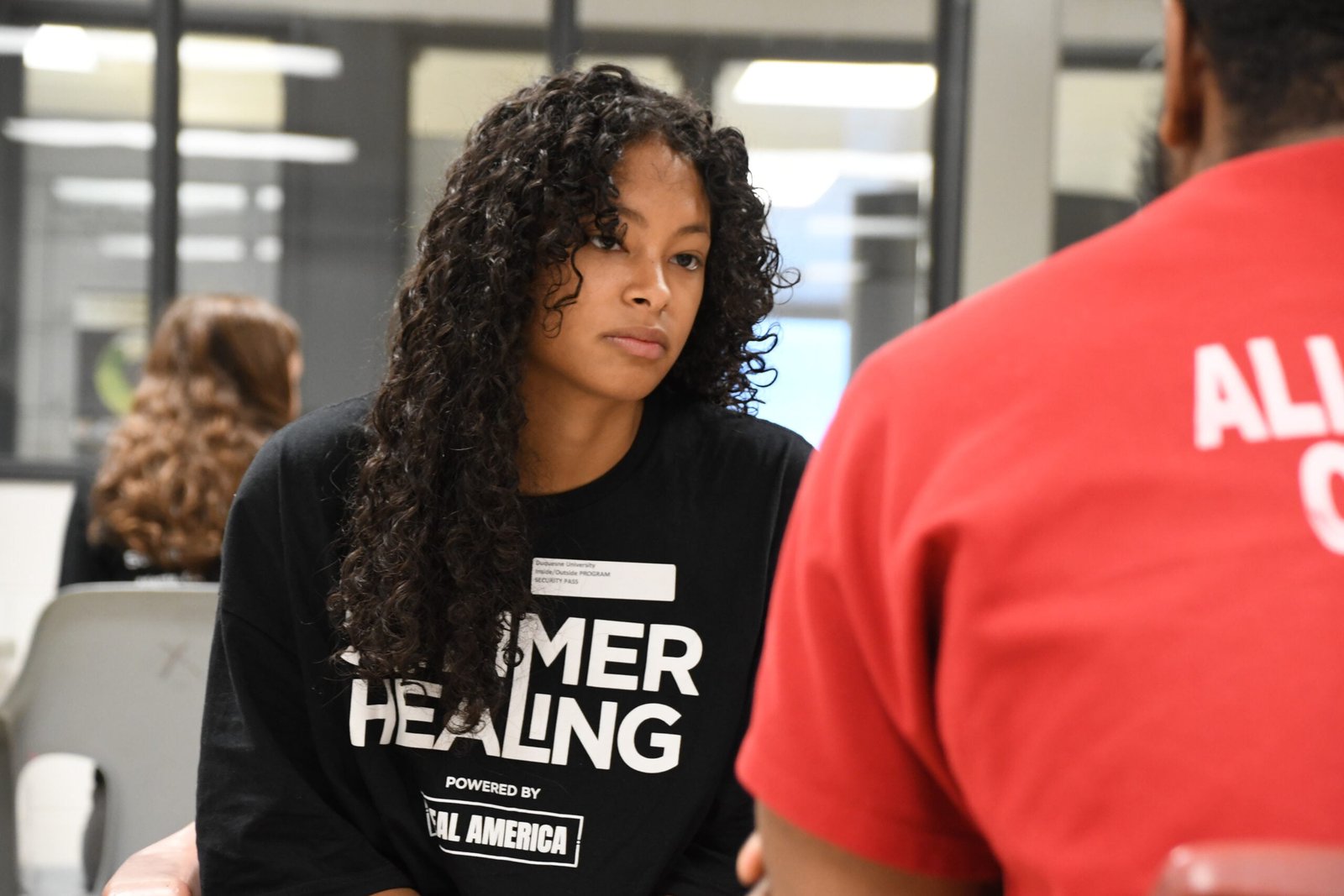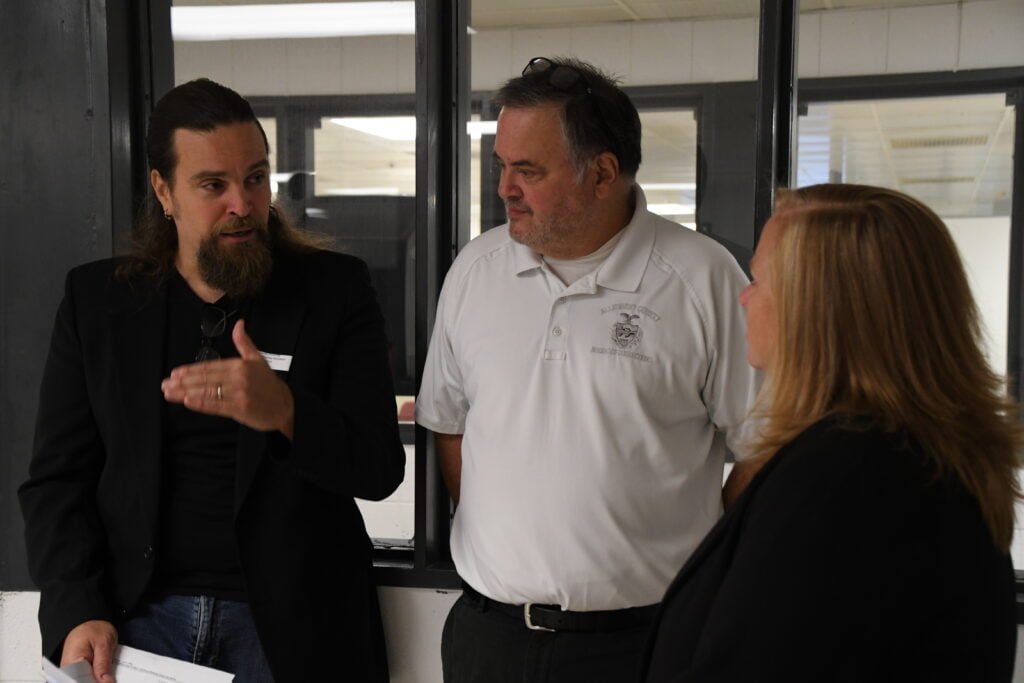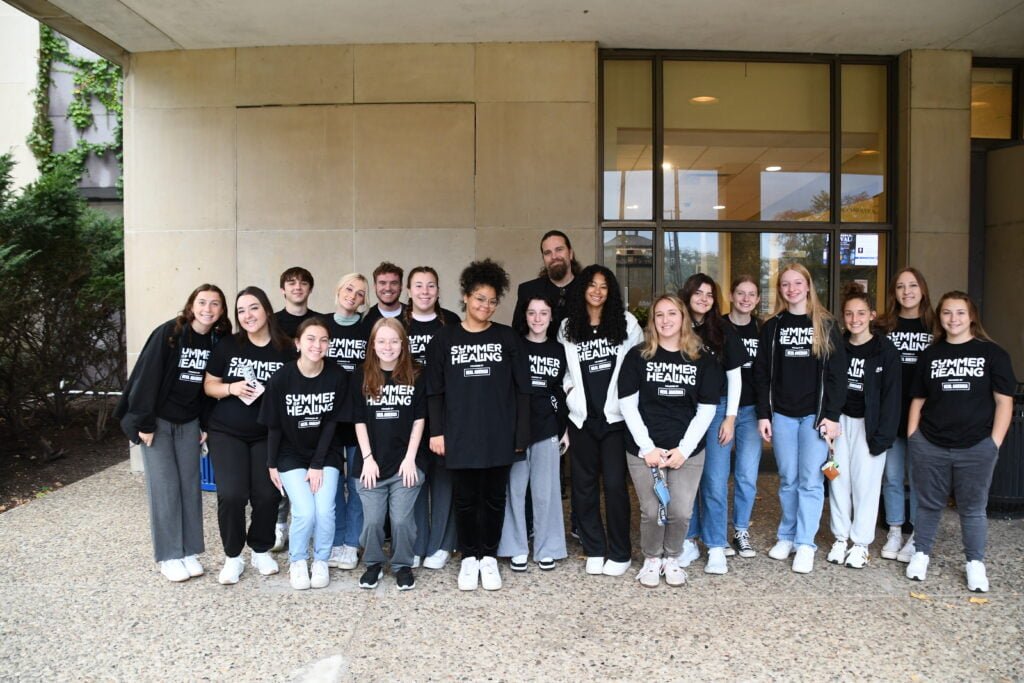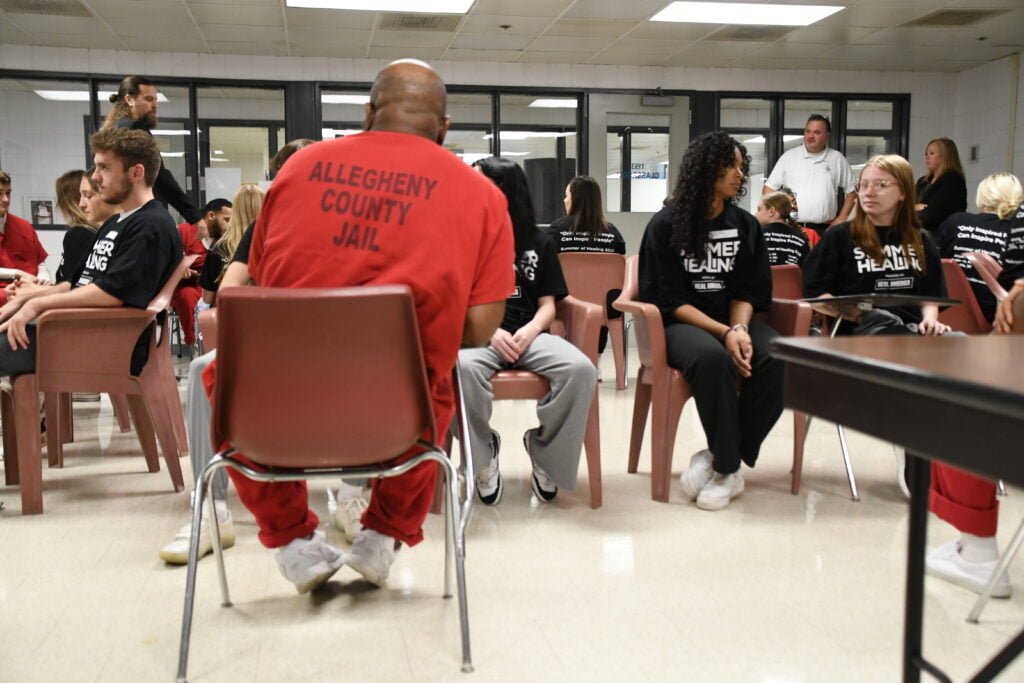Elsinore Bennu Think Tank for Restorative Justice (EBTT)
Pittsburgh, PA

The EBTT, founded by Duquesne University Professor Norman Conti alongside six men serving prison time, utilized Heal America’s Summer of Healing grant to fund continued programming, including facilitating weekly meetings and the Performing History/Autobiography in Progress course. As a facilitator of the Performing History/Autobiography in Progress class, Susan Stein discusses her one woman show Etty, a play adapted from the journal entries of Etty Hillesum, a Jewish Dutch woman writing in Amsterdam during World War II. To include more voices in the class, the EBTT partnered with the Holocaust Center of Pittsburgh to bring returning citizens, justice-involver youth, offices, and Jewish people together to discuss the dangers and consequences of racism, antisemitism, and discrimination. The EBTT, in line with Heal America’s vision, continues to heal divides between incarcerated individuals, law enforcement, and outside populations by highlighting the dignity of all members and creating opportunities to collaborate towards progress.
In 2013, the EBTT was created after a series of “Inside-Out Exchange” courses, in which insiders, or incarcerated individuals, would meet with outsiders—people living outside of prison—once a week to share their real-world experiences and study as peers in undergraduate/graduate seminars on criminal justice policy. The use of the terms insiders and outsiders was intentional. Re-labeling is an active choice to instill dignity in all participants and help participants unlearn one-dimensional understandings of each other. The outsiders in the original program were students of Conti’s college class, but the program was eventually adopted by the Pittsburgh Police Academy in 2016 and later became a part of the academy curriculum.
BARRIER
By connecting community members, police officers, and incarcerated individuals through coursework and discussion, The EBTT attempts to right historical wrongs. Police officers disproportionately threaten or use force against Black Americans, with “Black residents experiencing police misconduct at 12 times the rate of their white counterparts.” Conti said, “The first thing we really set out to accomplish was to buy a few seconds on each side of an interaction that could be potentially deadly.” Traditional police training receives criticism from experts and advocates for further entrenching divisions between officers and the communities they serve; the EBTT was founded to find a better way.
SOLUTION
As with all the EBTT’s work, the fundamental goal for this five-week course is for participants to recognize the dignity in themselves and each other. During the course, officers and recruits wear street clothes to come as themselves without the added weight and formality of their uniforms. As one outsider attendee said, “It is humanizing on both sides. The best thing about it is the one-on-one conversations, the fluid organic conversations they have with each other.” Robert “Faruq” Widerman, an insider and founding member of the EBTT, describes the first meetings between officers and incarcerated individuals: “All of us were a little apprehensive. We did it with just six lifers and six police officers. But we ended up friends.”
In addition to the Inside-Out program, the EBTT hosts weekly meetings to create a space for members — whether in prison, on Duquesne University campus, or over Zoom — to share their ideas and find partners for turning theory into practice. The EBTT is comprised of activists, artists, police officers, political leaders, professors, returning or incarcerated citizens, and students. The weekly meetings are what Conti describes as a “gracious space,“ where attendees are empowered to collaborate on creating bottom-up changes in the community. Conti explains, “Strangers are invited to learn together publicly and share themselves.” On equal footing and empowered to make change, the EBTT has succeeded at turning ideas into actions.
Through the connections fostered and built by the EBTT, members have hosted events to honor victims of violent crime, published a book of essays written by incarcerated members, and delivered food to senior living homes during the COVID-19 pandemic. Two of the EBTT members and professors, Sarah Kuehn and Cindy LaCom, organized the inaugural Voices for Juvenile Justice Conference in October 2022 with the goal of ”amplifying youth voices and connecting communities while creating a more equitable and fair juvenile justice system.” The environment created in The EBTT meetings centers on the dignity of all members, empowering individuals to identify bottom-up solutions to meet the needs of vulnerable communities and overcome systemic barriers.
In partnership with writers Roger Guenveur Smith and Susan Stein, Inside-Out was adapted as Performing History/Autobiography in Progress. While the original iteration of the Inside-Out Exchange Program focused on policy and restorative justice, Performing History/Autobiography in Progress builds on these themes through writing and performance experience. The class enables students to share their vulnerabilities and share their humanity in a different context. Conti explains, “Our hope is that this arts-based community-engaged learning will push all of us to authentically incorporate the voice of the other into our self-narratives and see each other, as well as ourselves, as people with vested interests in our shared communities and nation.” In the summer 2023 offering of the course, the program expanded to include young people as well as police officers and returning citizens.



